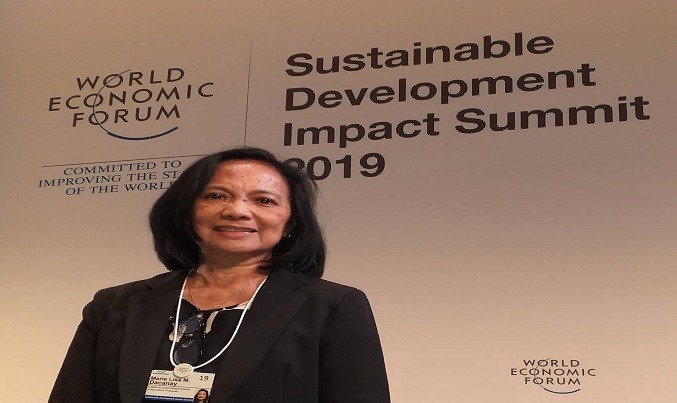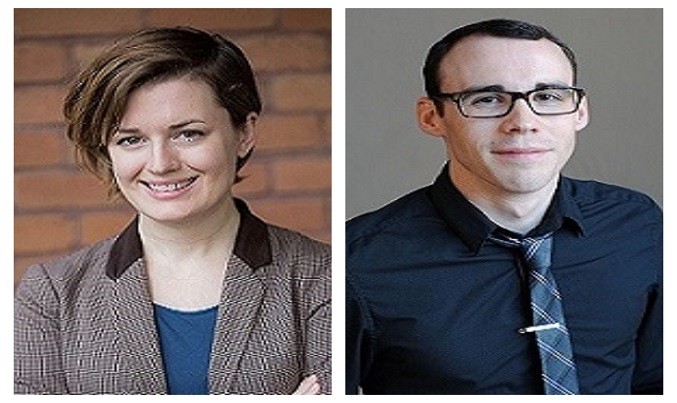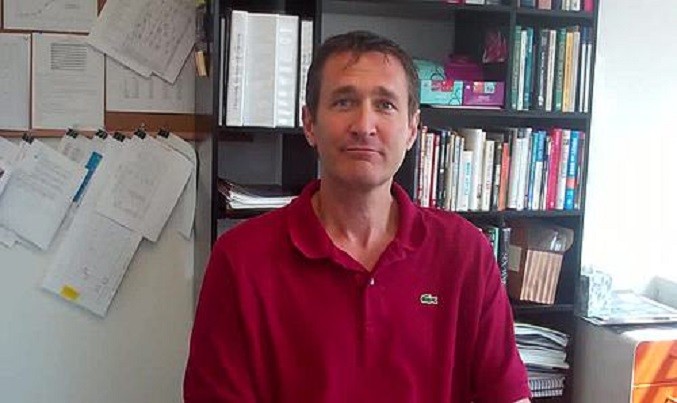The moment Dr. Lisa Dacanay graced her office with a beaming smile, I knew we’re headed for a purposeful conversation.
Her perky persona felt like a foreshadow of her vision for upscaling the concept of social entrepreneurship in the Asia-Pacific: bright and full of optimism. Marie Lisa Dacanay, Ph.D. is the founding president of the Institute for Social, Entrepreneurship in Asia (ISEA), a learning and action network led by social enterprises and social enterprise resource institutions to catalyze knowledge creation, capacity development and movement-building for social entrepreneurship in the region.
ISEA currently works in 10 countries in Asia, with focus on supporting social enterprises through development courses on best business practices as well as training sessions to understand the concept of social entrepreneurship.
Dacanay’s work at ISEA made her the first Asian woman to win the prestigious World Economic Forum Social Innovation Thought Leader Award. When asked about the award, she stressed that it was a product of her unwavering dedication to serve the community.
Since founding ISEA in 2008, Dacanay has been a social entrepreneurial champion. She has led research projects that proved the untapped potential of social enterprises in solving societal issues such as poverty. In the Philippines, for example, the number of social enterprises jumped nearly 450% in ten years: from 30,000 in 2007 to 164,000 in 2017. As more social enterprises enter the sector, better solutions at fighting poverty are being embraced.
Dacanay and ISEA played a fundamental role in the research and convening of stakeholders that led to the Poverty Reduction through Social Entrepreneurship (PRESENT) Bill, which aims to promote the growth and development of social enterprises through special incentives, benefits, and appropriating funds.
In an interview with iMPACT, Dacanay spoke on the concept of social entrepreneurship, its crusade in the Asia-Pacific region and her experiences that led to the award.
iMPACT: Can you tell us a little bit of yourself and the experiences that led to your recognition for the WEF award?
Dr. Lisa Dacanay: I think the most important basis for the award is the work that we’ve been doing on building and promoting a movement for social entrepreneurship in Asia. The pioneering initiative would be the setting up of the institution itself.
We are an institute that’s one of a kind because we do a lot of things, but mostly it’s on education and research for social entrepreneurship to flourish in the region.
The other thought leaders that I met in the forum were mainly academics who were teaching and doing initiatives in universities whereas our network (ISEA) is really a consortium of practitioners, resource institutions, and the academe that work collaboratively to serve the social sector.
One of the bases of the award is how you focused on giving attention to the needs of social enterprises through the ISEA network. What can you say about the current situation of social entrepreneurship in the Asia- Pacific region?
It really depends per country. In the Pacific, social enterprises are still in the process of being understood. For example, in ISEA, we still don’t have members from the Pacific. But in the Philippines, it is more developed. Insufficient knowledge of people and lack of support from the government can be really detrimental to its development. This is the reason why we are working hard to push the concept of social entrepreneurship especially in countries not yet fully embracing the idea.
How important is this rising social entrepreneurship in terms of solving issues such as poverty and inequality?
Social enterprises are hybrid organizations. They create wealth like a business; but unlike ordinary businesses, they distribute that wealth to their primary stakeholders who are marginalized. In short, they engage the poor not only in a transactional way but in a transformational way—to help them become actors in their own development.
One example I can give are social enterprises assisting coffee farmers to become not only producers of coffee but also processors and sellers of their own coffee brands. This way, coffee farmers get more share of the value of their product which, in the long term, could help them get out of poverty.
What do you think is the role of the government in helping further enable the development of social entrepreneurship?
The government can play a developmental role and help recognize and scale up the impact of social enterprises. While the social enterprise sector saw development despite the lack of support from governments, a backing law would create an enabling environment to advance their initiatives such as those that help alleviate issues like poverty and inequality in society.
Besides the lack of government support, what were the other challenges that you encountered during your work?
Social enterprises face a lot of challenges and I think one of them which I’ve personally encountered is access to financing. Most banks require collaterals and social enterprises wouldn’t be able to provide because they are micro-enterprises. It can be disheartening because it goes back to the lack of understanding as to how social enterprises operate.
Another impediment is the response of the market and the business sector to the concept itself. Either they’re anti-social enterprises at all or they choose to only give lukewarm support.
With all those challenges mentioned, what must happen for social enterprises to be successful?
Because social enterprises are hybrid organizations, they are harder to manage and it’s more difficult to make them sustainable than ordinary businesses. And if you think of businesses, 80% of them don’t succeed because there’s a risk in setting up one. But social enterprises are different animals; they need to be understood and supported differently.
If a social enterprise must be successful, the first thing that should happen is that the people around them must reframe the way they appreciate the role of social enterprises. Most of us lack understanding of what a social enterprise is—they exist to build a strong social economy so that we may be able to solve issues that interfere with society’s growth.
What’s next for you and the social entrepreneurial landscape?
The award has given me and ISEA easier access to leaders of the business community, the government, and multilateral agencies; for them to seamlessly collaborate with us and further push our initiatives. As I mentioned, some other countries are still not fully receptive to the idea of social entrepreneurship and that is one thing we’re really working on to improve next.
Next year, we are organizing a conference in March and UNESCAP (United Nations Economic and Social Commission for Asia and the Pacific) agreed to co-convene [the conference] with us in their headquarters in Bangkok. Hopefully this becomes an avenue for us to engage more sectors in different parts of the region.









